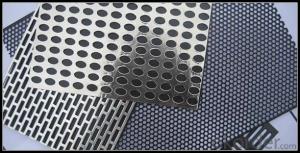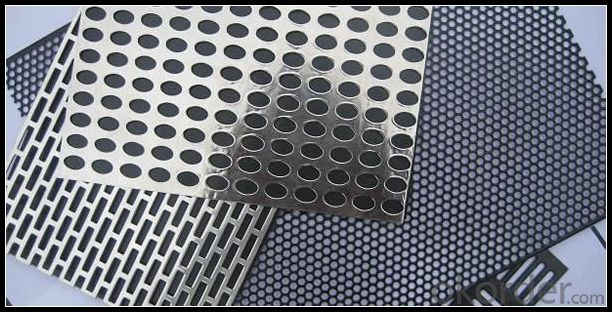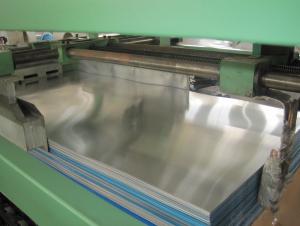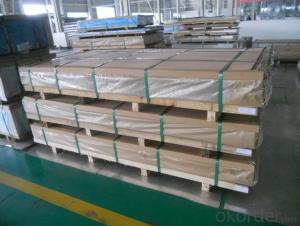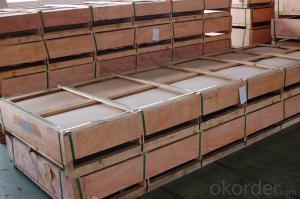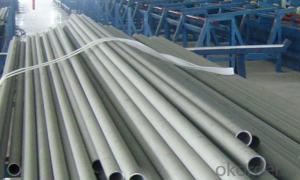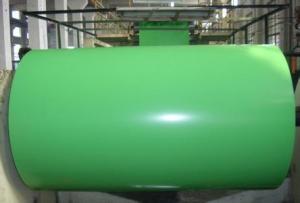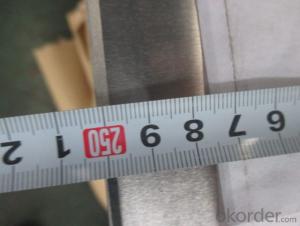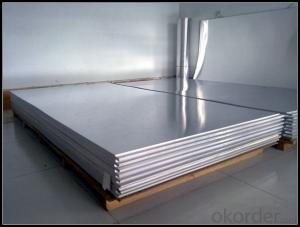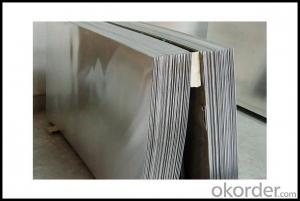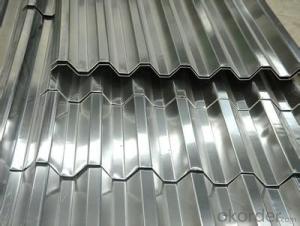Perforated Aluminum Roofing Sheets Ghana Tema - Best Quality in China
- Loading Port:
- Shanghai
- Payment Terms:
- TT OR LC
- Min Order Qty:
- 5 m.t.
- Supply Capability:
- 10000 m.t./month
OKorder Service Pledge
OKorder Financial Service
You Might Also Like
Specification
1. Specification of Perforated Aluminum Sheet
Aluminum Coil/Sheet | |
Main Specification | |
Alloy | AA1xxx (AA1050, AA1060, AA1070, AA1100 etc.) |
AA3xxx (AA3003, AA3004, AA3005, AA3105 etc.) | |
AA5xxx, AA6XXX (AA5052,AA5083, AA5754, AA6061, AA6062 etc.) | |
AA8xxx(AA8011, AA8006 etc.) | |
Temper | H14,H16, H18, H22, H24, H26, H32,O/F, T4, T6, T651 |
Thickmess | 0.01mm-100mm |
Width | 30mm-1700mm |
Standard | GB/T 3880-2006/ASTM |
Special specification is available on customer's requirement | |
2. Application of Perforated Aluminum Sheet
(1).Interior: wall cladding, ceilings, bathrooms, kitchens and balconies, shutters, doors...
(2).Exterior: wall cladding, facades, roofing, canopies, tunnels,column covers , renovations...
(3).Advertisement: display platforms, signboards, fascia, shop fronts...
3. Feature of Perforated Aluminum Sheet
Surfact Quality :
Be free from Oil Stain, Dent, Inclusion, Scratches, Stain, Oxide Dicoloration, Breaks, Corrosion, Roll Marks, Dirt Streaks and other defect which will interfere with use,
Mechenical Property:
Chemical Composite and Mechanical Property
4. Certificate:
SGS and ROHS(if client request, paid by client), MTC(plant provided), Certificate of Origin(FORM A, FORM E, CO), Bureau Veritas and SGS (if client request, paid by client), CIQS certificate
5. Image of Perforated Aluminum Sheet
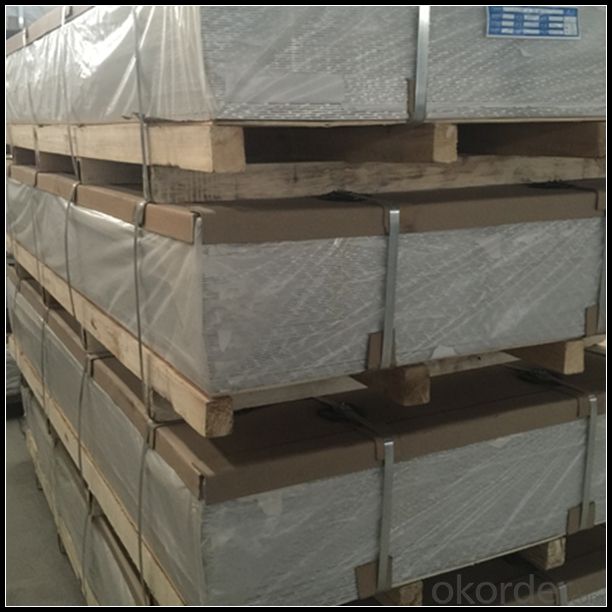
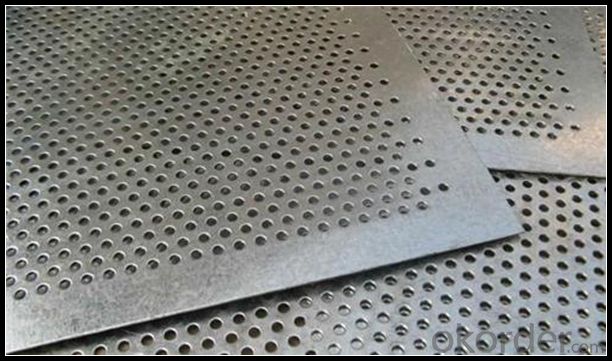
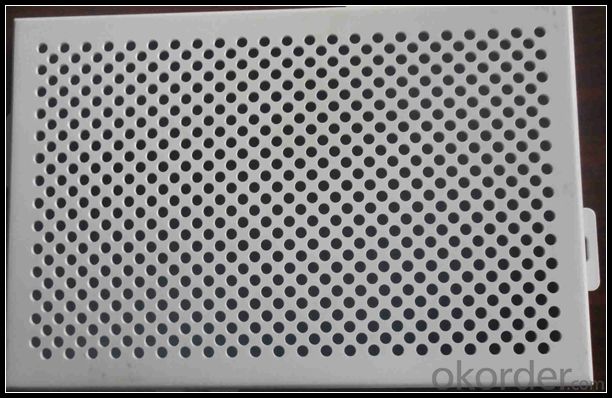
6. Package and shipping of Perforated Aluminum Sheet
First, plastic cloth with drying agent inside; Second, Pearl Wool ; Third, wooden cases with dry agent , fumigation wooden pallets, aluminum surface could cover blue PVC film
7. FAQ
1) What is the delivery time?
Dpends on actual order, around 20 to 35 days
2)What is the QC system:
We have QC staff of 20 persons and advanced equipment, each production is with MTC traced from Aluminum ingot lot.
3) What market do you mainly sell to?
Australia, America, Asia, Middle East, Western Europe, Africa etc
- Q: What are the surface treatment requirements for aluminum sheets in the food industry?
- Aluminum sheets are widely used in the food industry due to their exceptional resistance to corrosion and lightweight nature. However, it is essential to fulfill specific surface treatment criteria to guarantee the safety and quality of the food items. To begin with, aluminum sheets utilized in the food industry must undergo a cleansing process to eliminate impurities and contaminants. This can be achieved through various methods, such as chemical, alkaline, or mechanical cleaning. The objective is to eradicate any potential sources of contamination that could adversely impact the taste, odor, or safety of the food. In addition, it is crucial to properly finish the surface of the aluminum sheets to prevent any interaction between the metal and the food. Anodizing is a highly favored surface treatment technique that forms a protective oxide layer on the aluminum surface. This layer not only enhances corrosion resistance but also acts as a barrier against the migration of aluminum ions into the food. Moreover, it is of utmost importance to ensure that the materials used for surface treatment are food-grade and compliant with relevant regulations. The food industry has implemented specific guidelines and standards to ensure the safety and suitability of materials that come into contact with food. Therefore, adherence to these standards is essential during the surface treatment process to prevent any potential health hazards or risks of contamination. Regular inspection and maintenance of the surface treatment are also necessary to ensure its long-lasting effectiveness. This involves monitoring the integrity of the protective layer, identifying any signs of wear or damage, and taking prompt corrective actions. To summarize, the requirements for surface treatment of aluminum sheets in the food industry encompass thorough cleansing, proper finishing, the use of food-grade materials, and regular maintenance. These measures are critical in ensuring the safety and quality of food products, as well as compliance with industry regulations and standards.
- Q: When zinc dust and sulfur dust are combined in certain proportional ratios and ignited, a violent exothermic reaction occurs. Because the reaction only depends on two components; zinc and sulfur, but not oxygen, the reaction has all of the components that it needs within the mixture. The same is also true for a mixture of magnesium and sulfur.However, the same reaction does not occur with iron and sulfur. Instead, the mixture reacts slowly over a period of a few minutes rather than flashing to smoke in less than a second. Now for my questions:1: If aluminum and sulfur were combined in the same proportional ratios as the zinc and the magnesium mixtures were, would the reaction be as fast as the zinc and the magnesium mixtures? Why or why not?2: What properties of the different metals used in these mixtures makes them behave so differently?
- 1. This depends on the aluminium particle size and it's quality as Al is normally coated with an oxide layer that protects the Al metal underneath. Assuming that the Al powder was good stuff, it should react as violently as the Zn and Mg mixtures. Why .. because it is a very reactive metal ... see further info below. However I needed tried it. 2. The difference is really about the reactivity. Iron, although a reactive metal, is far less reactive than Mg,Al, and Zn. I have tried the zinc and sulphur a number of times and it is really quite violent. With a fair quantityof reactants in the lab it produced an excellent mushroom smoke cloud. I've also seen the Al reactivity demonstrated by a mad Chemistry prof from Nottingham University. He mixed Al powder into a paste with liquid oxygen and ignited it! Wow ... what a reaction.I shall never forget it although it was about 35 years ago!
- Q: Is the chemical formula for Aluminum Sulfate Al2(SO4)3?How and why is Al2(SO4)3 wrong?
- Aluminium sulfate or Aluminium Sulphate, written as Al2(SO4)3 or Al2O12S3 Aluminium sulfate is an industrial chemical used as a flocculating agent in the purification of drinking water[2][3] and waste water treatment plants, and also in paper manufacturing. Aluminium sulfate is sometimes incorrectly referred to as alum but alums are closely related compounds typified by KAl(SO4)2.12H2O. The anhydrous form occurs naturally as a rare mineral millosevichite, found e.g. in volcanic environments and on burning coal-mining waste dumps. Aluminium sulfate is rarely, if ever, encountered as the anhydrous salt. It forms a number of different hydrates, of which the hexadecahydrate Al2(SO4)3?16H2O and octadecahydrate Al2(SO4)3?18H2O are the most common. The heptadecahydrate, whose formula can be written as [Al(H2O)6]2(SO4)3?5H2O, occurs naturally as the mineral alunogen. [1]
- Q: What is the modulus of elasticity for aluminum sheets?
- The modulus of elasticity for aluminum sheets, also known as Young's modulus, is typically around 69 GPa (gigapascals) or 10 million pounds per square inch (psi). This value represents the measure of the stiffness or rigidity of the material. However, it is important to note that the modulus of elasticity can vary slightly depending on the specific alloy composition and tempering of the aluminum sheet.
- Q: what is aluminum pigment paint in the scratch cards of lottory?is it metalic or organic sabstance like latex?
- They mix aluminum or just about any opaquing material with a wax-like coating that will be easily scratched off. The early tries at this were defeated with strong lasars and cards could be read and be selected to be handed to confederates. Very fine AL power is available and is a safe product and is very opaque and cheep.
- Q: This question asks for a comparison of various types of aluminum sheet materials, highlighting their unique characteristics and differences.
- <p>Aluminum sheet materials vary based on alloy composition, thickness, and surface treatment. Common types include 1000 series (99% pure aluminum), 3000 series (alloys like 3003 and 3004), 5000 series (magnesium alloys), and 6000 series (magnesium-silicon alloys). Each series has distinct properties: 1000 series is soft and ductile, 3000 series offers moderate strength and good formability, 5000 series has high strength and corrosion resistance, and 6000 series is known for its strength and excellent weldability. Thickness and temper (hardness) also affect performance, with thinner sheets being more flexible and harder tempers offering greater strength. Surface treatments like anodizing or painting can enhance appearance and corrosion resistance.</p>
- Q: Can aluminum sheets be used for packaging?
- Yes, aluminum sheets can be used for packaging due to their lightweight, corrosion-resistant, and recyclable properties.
- Q: Are aluminum sheets suitable for aircraft manufacturing?
- Yes, aluminum sheets are widely used in aircraft manufacturing due to their lightweight, high strength-to-weight ratio, excellent corrosion resistance, and good formability.
- Q: Can aluminum sheets be used for solar panel applications?
- Yes, aluminum sheets can be used for solar panel applications. Aluminum is a lightweight and durable material that is commonly used for the frames and backings of solar panels. It offers good corrosion resistance and can efficiently dissipate heat, making it suitable for solar panel installations.
- Q: What oil does the aluminum plate stretch with?
- There are professional tensile oil, you can ask to pull the rice cooker liner manufacturers know, if not a lot of production, you can use peanut oil first try, the effect barely enough!
Send your message to us
Perforated Aluminum Roofing Sheets Ghana Tema - Best Quality in China
- Loading Port:
- Shanghai
- Payment Terms:
- TT OR LC
- Min Order Qty:
- 5 m.t.
- Supply Capability:
- 10000 m.t./month
OKorder Service Pledge
OKorder Financial Service
Similar products
Hot products
Hot Searches
Related keywords
